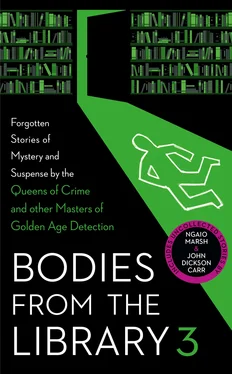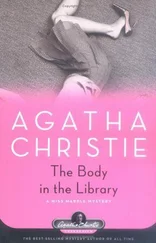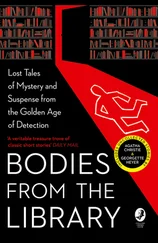When Prentisse at first, and almost surreptitiously, returned to his writing, his wife seemed neither to mind nor to be interested. After all, she had plenty of outside interests. On her first discovery of his new activity it had been: ‘Darling, how frightfully clever of you!’ and then, at intervals, ‘Oh, you poor dear, I hate to see you working so hard! Why don’t you stop now and rest?’ Then, on the publication of his first novel, ‘Darling, it’s too frightfully thrilling for anything!’
Thereafter it might have been said by the unkind that her tolerance or possible encouragement of his efforts was not unconnected with material considerations. But Prentisse apparently doted on her and generously provided that his earnings should be hers in the form of special presents.
But the Spring of 1947 had seen a slight deterioration in the warmth and closeness of their relationship. He was engaged on a new book which he definitely knew was good, and he refused to take his work to the Riviera. Dorothy had however kept to the routine and had gone to Menton with a small circle of friends that included Peter Claire and Miriam Foster.
Claire, a handsome, country club type man of about thirty-five, was a very old friend. Prentisse, in his own undemonstrative way, was very fond of him. The Prentisses saw a lot of him when he was in town and he often dined at the Hampstead house.
It was because he did not want to keep that house open during his wife’s absence that Prentisse had taken that Porter Street flat. Dorothy was away till the very end of May and then something happened. Her only sister had been taken seriously ill and she had gone down to Carnford to be with her.
That was not so unsettling for Prentisse as it might have been, for the book was not quite finished. A few days would see it with the publisher and he stayed on at the flat. In the morning he usually put in his best work, but that particular morning he was annoyed, and worried over what seemed a very trivial thing.
Before him was the morning’s edition of The Times and it was at a certain letter that he was scowling. A policeman had written rather indignantly on the treatment of his profession by writers of detective novels. The police, he affirmed, were treated like buffoons and authors rarely troubled to make themselves familiar with the real workings of either Scotland Yard or the C.I.D. departments of provincial forces.
But it was not the police and their methods that were worrying Lutley Prentisse, but the whole principle which the letter called in question. He himself had always been careful to use in his books such local colour as had been familiar and things with which he had had at least a working acquaintance, but in that novel, now almost finished, he had brought in something with which he was not familiar at all—a private detective agency.
The chapter that dealt with it had been written and he had taken a great deal for granted, not caring much whether or not an absolute verisimilitude had been achieved. A detective agency, for instance, would have an office. Well, such offices were surely pretty much alike, and in his novel its appearance had been guessed at. And so with the head of the firm, and the conversation, and all the things that go to make what one calls local colour.
Some people would have regarded the whole thing as utterly unimportant. There could be little connection between that letter and the chapter in question. They would have argued that a private detective was most unlikely to read that particular chapter and that the man in the street, provided the book as a whole kept him reading into the small hours, would not care the proverbial tuppence about the niceties of local colour.
But such a view was contrary to Prentisse’s meticulous mind. He was also a man of impulses and curious obstinacies. That was why he suddenly made up his mind that the right thing to do would be to visit a detective agency and check up that chapter in the light of such new impressions as he might form. But the resolve brought also an annoyance.
There was the chance that his guesses in that chapter had been reasonably correct and that the chapter would not have to be re-written. But whether that were so or not, time would be wasted and just when he was fired with the urge to finish the book. To ignore the letter seemed sheer carelessness. That letter from the policeman might start a spate of inquiries into local colour. Heaven knew what people and professions would be writing to the Press about the gross errors they had unearthed. He could almost see one such letter—
Dear Sir,
Referring to the matter of local colour, I was very amused to find in a novel by Lutley Prentisse entitled ‘Tingling Symbols’ a statement that …
In any case that morning he was unable to settle down to work and just before noon he went along to his club. He ran into George Foster and they lunched together.
‘Was that Peter Claire I saw getting into a taxi just as I came in?’ Prentisse happened to ask.
‘That’s right,’ George said. ‘I was talking to him just before. He’s going down to Cambridge tomorrow to play for the Pilgrims against the Wanderers. A two-day match. Did you want to see him?’
‘Well, in a way—yes. I wanted him to give me an introduction to his brother. He’s a Chief Constable, as you probably know, and I hoped he might give me some local colour and save some rather tiresome inquiries.’
George Foster was probably the only man to whom he would have told that morning’s worries. George didn’t seem at all unhappy about it.
‘I don’t think a Chief Constable would help very much,’ he said. ‘Why not go to the fountainhead? I know a really good firm of private detectives who did an excellent job for a friend of mine. You go along and see them. Just make up some yarn or other. Just a simple job that won’t cost very much. That ought to give you the whole bag of tricks.’
Foster happened to remember the name of the firm and the approximate address, and that Friday afternoon Prentisse made a bold decision and went to Took Street. The taxi driver happened to know the number and on a door on the first floor Prentisse found what he wanted.
PERRING AND HOLT
PRIVATE INQUIRY AGENTS
He knocked, and the door was opened with instant and agreeable promptitude by a receptionist.
‘Can I see one of the principals, please?’ he asked.
‘Take a seat, sir, please,’ the young lady replied. ‘I think Mr Holt is free. Have you a card?’
A couple of minutes and he was in Holt’s room. It was a smallish office crammed with filing cabinets and reference books. There was the usual flat-topped desk and swivel chair. Holt, a dapper-looking youngish man, rose and held out a hand.
‘How d’you do, Mr Prentisse. Take a seat, will you? Cigarette? … And what precisely may we do for you?’
‘Well, er—’
Holt smiled reassuringly. ‘Secrets are safe with us, sir. We’re used to handling affairs of the utmost delicacy, and in the strictest of confidence. You can rely on us implicitly.’
Prentisse had to think quickly. The thoughts he had had were now in thin air. It would be crude to admit that he was in that room solely for the purpose of picking brains. When he did speak it was only to make time.
‘It’s a fairly trivial matter,’ he said.
‘It doesn’t matter to us, sir,’ Holt assured him. ‘Whatever the work, we can undertake it. And in strict confidence.’
His manner was suave and impressive. Prentisse thought of the use he had made in his novel of an imaginary detective agency and decided on something along the same lines.
‘Well’—there was still a certain diffidence in his manner—‘I take it you’re prepared to keep people under observation? Not necessarily to do with divorce, of course.’
Читать дальше











